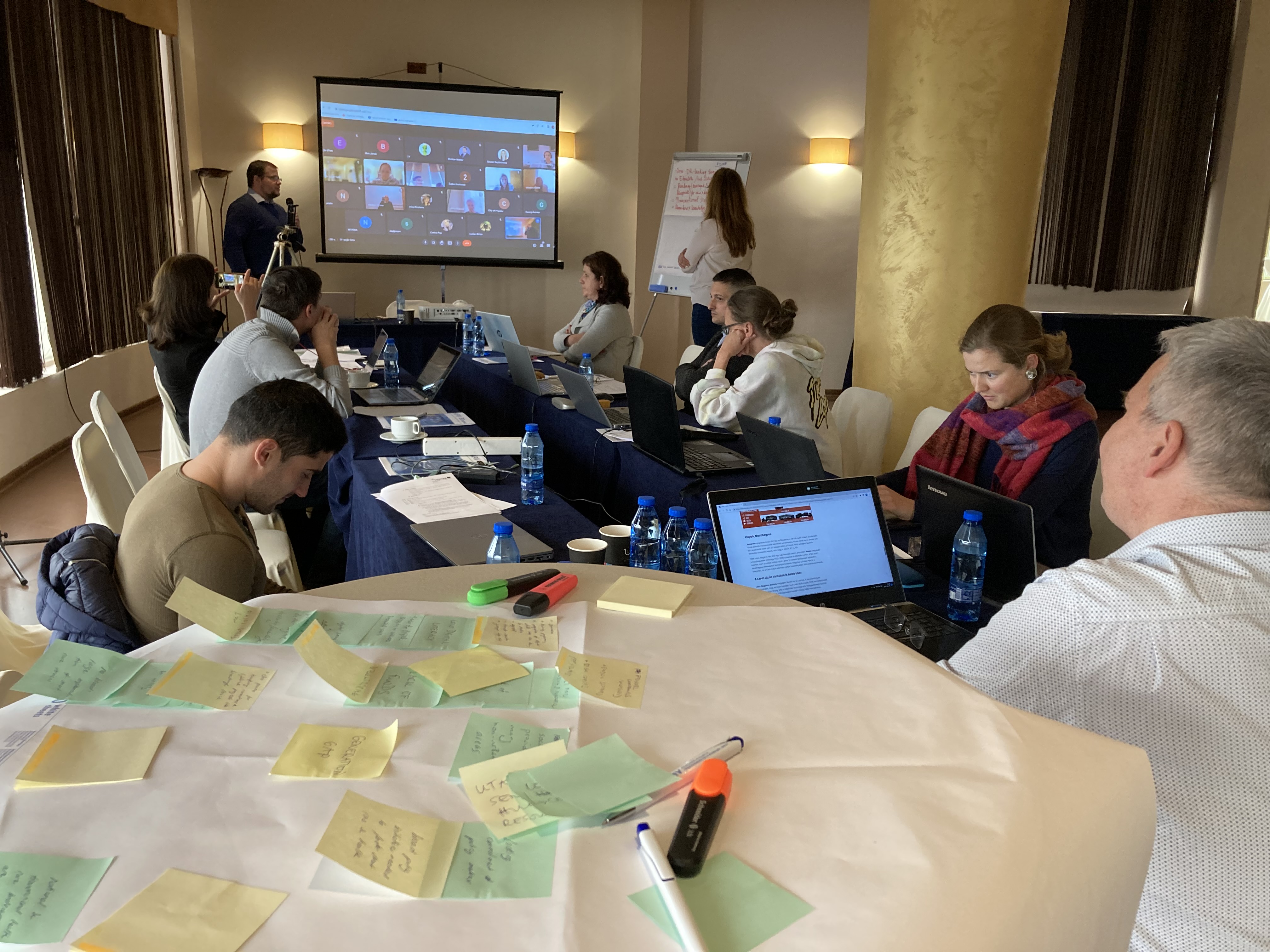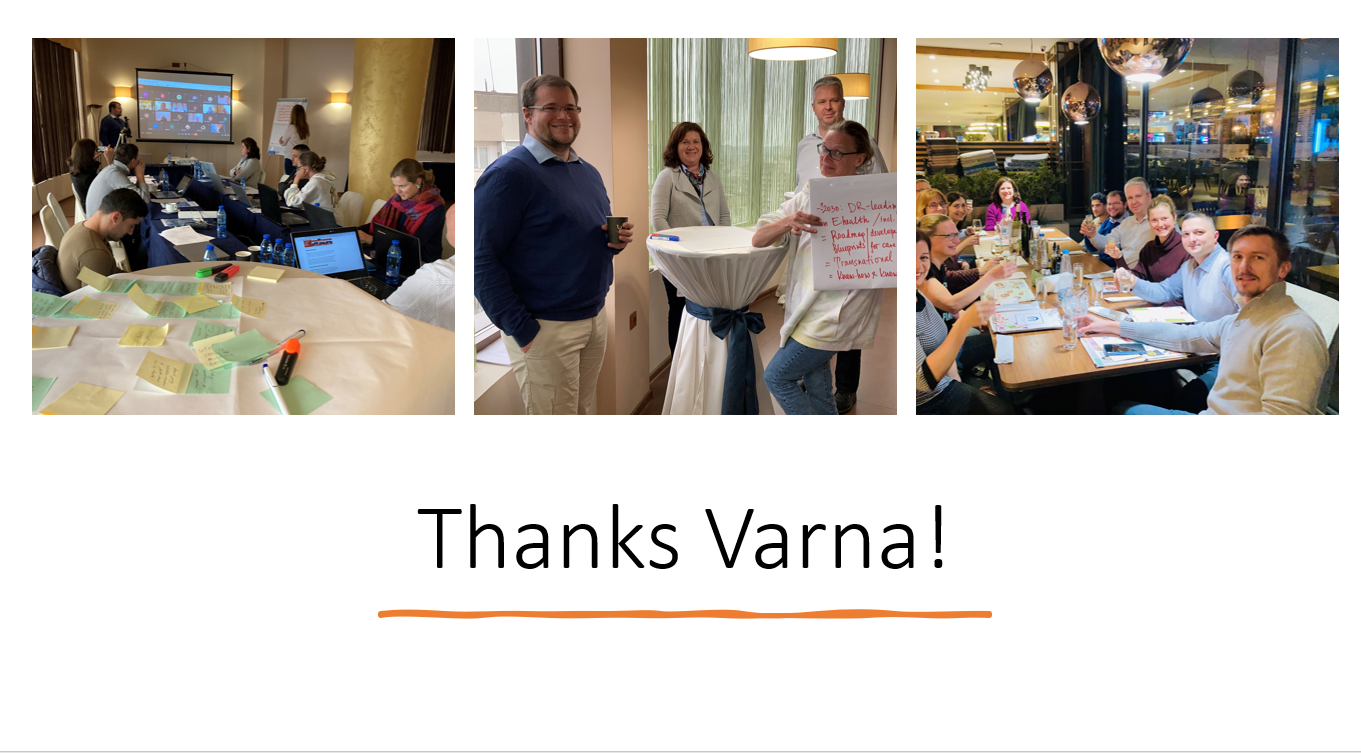D-CARE - Working on the Transnational Strategy at the Black Sea cost
01-05-2022
Just before many of us celebrated Easter we had the (almost) first chance to meet each other in person in Varna, Bulgaria while working intensively on our transnational strategy for smart health and care.
After the long covid-induced period of solely online meetings it was a pleasure for project partners to be able to work together on the same sheet of posterpaper and discuss their ideas in person – not only during our workshops but also the walks along the beatiful coastline of Varna and enjoying local specialties for lunch and dinner.

The meeting took place in the context of developing a transnational strategy to advance smart health and care policies in the Danube regions and presenting good practices for smart health and care policies. The first workshop offered interesting insights in good practices stemming from the project regions such as the electronic health care communication system from Hungary or the AAL test region from Vienna. Each of the presentations was followed by lively discussions among the participants on site and their colleagues from project partners taking part via video conference. It became clear that all these good practices largely followed the quadruple helix approach, involved users early on and integrated the policy level very well. The lessons learnt as well as the good practices themselves will be put together into the Best Practice Manual, open to read to anyone interested and engaged in the field for inspiration and reference sites.
For the second event, we turned to further developing our transnational strategy for smart health and care in the Danube region. Following comprehensive discussions aforehand the participants on site together with the colleagues from project partners taking part via video conference developed a vision statement for the strategy using utopic thinking to generate a futuristic picture of the Danube region which would be a hub for smart health and care innovation and implementation. Working downwards to more concrete levels from this, the groups determined policy changes needed in the region to approximate the vision as well as measures and indicators to assess progress and developments.
We are looking forward to launching our transnational strategy in autumn this year – hopefully in another productive and rich personal meeting.
We would like to give our special thanks to the RAPIV team, our project partner from Varna, who organised our meeting and stay in Varna which so much care and diligence – it was a great pleasure!

